Learning about necessary vitamins for laying hens is very important. Because your laying hens need different vitamins and minerals for proper growth and production.
If you feed your laying hens well balanced, high quality, fresh and nutritious feeds then you don’t have to add extra vitamins supplements to their regular feeds.
Add vitamin supplements only if you find any signs of vitamin deficiency to your laying hens. Normally fall off egg production, poor shell quality etc. are signs of vitamin deficiency. Adding some vitamins supplements to their regular feeds might improve the condition.
Different Vitamins for Laying Hens
Vitamins play a very important role in the health and productivity of laying hens. These essential organic compounds are required in small quantities but have a significant impact on various physiological processes in chickens.
From Vvtamin A to vitamin D and vitamin E, each vitamin has a specific function. The B-complex vitamins are essential for energy metabolism. Vitamin C supports the immune system. Choline contributes to egg yolk formation, and biotin ensures healthy feathers and skin.
Folate, another B vitamin, is very essential for embryonic development. It influence eggs hatchability and also chick health. Understanding the roles of these vitamins is essential for maintaining good health of your birds.
1. Egg Vitamin Deficiency
Lack of some vitamins can causes unexpected egg production and bad quality eggs. Vitamin A and deficiency minimize the egg production.
Lack of vitamin D results eggs with thinner shells and also decrease egg production. Some other vitamin deficiencies that affect egg production are folic acid, choline and vitamin B12 that is also known as riboflavin.
Be aware about vitamin B12 deficiency especially if you are raising chicks. Because lack of this vitamin can result in embryo death.
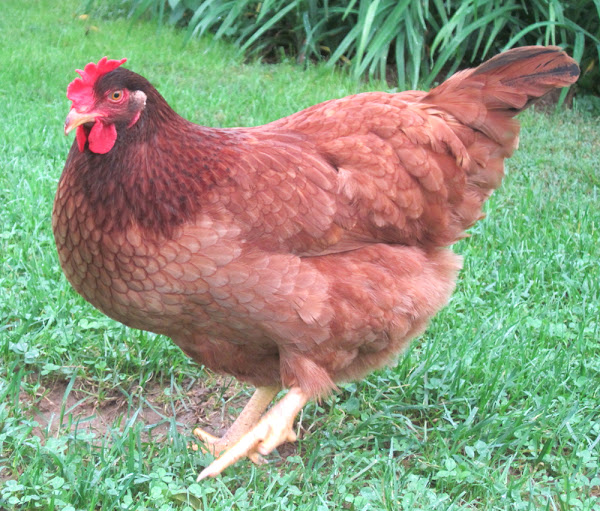
2. Hen Vitamin Deficiency
Slow and poor growth can be seen in chickens due to both vitamin A and D deficiency. Lacking of those vitamins can also possibly causes rickets.
Large hocks are sign of vitamin E deficiency. And intramuscular bleeding causes due to lack of sufficient amount of vitamin K in laying hen’s feed. vitamin B is very important for chickens especially for laying hens.
Hens lose their appetites and die due to lack of vitamin B1 or thiamine. Little amount of vitamin B2 causes curly toe paralysis in hens and insufficient amount of vitamin B12 results in anemia and poor growth.
Dermatological lesions on the feet and beak of hens causes due to lack of pantothenic acid and biotin. Bow legs and mouth and tongue inflammation causes due to lack of sufficient amount of niacin.
Fatty liver caused by too little amount of choline. Poor feather quality and anemia causes due to lack of folic acid in the regular feed of hens.
3. Multivitamins
You can apply multivitamins for chickens if you notice any issues with egg production and quality. Apply multivitamins only when you notice any issues or if your laying hens are not producing and looking as well as they should.
Along with various types of vitamins, minerals are also very important for laying hen’s health. So, you have to buy and apply complete multivitamin-mineral supplements.
During extreme heat and stress periods multivitamin supplementation can be very useful. Mix the multivitamin supplement either with feed or into water, depending on the product type.
Never serve the multivitamin mixed feed or water for long time to the hens and don’t mix the multivitamin supplement into an entire bag or storage container of feed and large water tank.
In case of mixing multivitamins with feeds, mix in enough for several days rations. Always serve your hens sufficient amount of fresh water daily.
4. Considerations
There are various types of multivitamin poultry products are available in the market. Before buying for your laying hens, consult with your nearest vet or farm experts.
And try to learn what type of multivitamins are best for your particular flock. Pay careful attention to the expiration dates in the body of package. Also check if the packaging requires the product to be used at once, or if it can be resealed for use over a prolonged period.
You should also look at package claims. You know, only proper vet products can treat the actual diseases and help to keep the laying hens healthy and productive.
You can also ask your nearest agricultural extension agent for recommendations. Never use low cost unauthorized medicine or multivitamin supplements. Your birds may sick or die by using those supplements instead of being benefited.
Providing proper vitamins for laying hens is very important for getting better egg production from them and their good health. So pay attention to your hens feed and health. And ensure availability of all types of vitamins and minerals in their regular feed.
Functions Of Vitamins For Laying Hens
Vitamins are very important for the health and productivity of laying hens. Each vitamin serves a specific function, from supporting vision and reproduction to enhancing eggshell quality, protecting against oxidative stress, and ensuring proper energy metabolism.
Like many other poultry birds, laying hens also require adequate vitamins and minerals. So, ensure that you are providing a well-balanced diet that meets the vitamin requirements of laying hens to optimize egg production and maintain bird health. Here we are going to share the functions of different vitamins for laying hens.
1. Vitamin A
Vitamin A is essential for laying hens. It plays a very important role in maintaining good vision and supporting reproduction. Laying hens with vitamin A deficiency may experience night blindness. And this can result reduced egg production. Along with this, vitamin A is essential for proper embryonic development and for ensuring healthy chicks.
2. Vitamin B
The B-complex vitamins, including B1 (thiamine), B2 (riboflavin), B3 (niacin), B5 (pantothenic acid), B6 (pyridoxine), B7 (biotin), B9 (folate), and B12 (cobalamin), are essential for energy metabolism in laying hens.
These vitamins help to convert the nutrients in the diet into energy that can be used for egg production and other bodily functions. A deficiency in any of these B vitamins can lead to reduced egg production, poor growth, and health problems.
Biotin is a B vitamin and it is essential for maintaining healthy feathers and skin in laying hens. It also contributes to the production of fatty acids (which are essential for energy and egg production).
Folate is another B vitamin and it is essential for proper embryonic development in laying hens. Folate deficiency can result in poor hatchability and malformed chicks.
3. Vitamin C
Vitamin C is very essential for supporting the immune system of laying hens. It helps the birds combat diseases and infections. And providing enough vitamin C ensures that the birds remain healthy and productive.
4. Vitamin D
Vitamin D is is essential for calcium absorption and utilization in laying hens. Calcium is a key component of eggshells. And without adequate vitamin D, hens may not absorb calcium efficiently, resulting in weaker eggshells.
5. Vitamin E
Vitamin E is an essential antioxidant that helps to protect the laying hens from oxidative stress. Laying hens are susceptible to oxidative damage due to the high metabolic rate associated with egg production. Vitamin E helps combat oxidative stress and keeps the birds healthy and productive. It also supports the immune system. And reduce the risk of infections that can impact egg production.
6. Vitamin K
Vitamin K plays a very important role in blood clotting (which is important for laying hens), as the chickens can sometimes experience injuries or internal bleeding. Adequate vitamin K in their diet ensures that hens can quickly form blood clots to stop bleeding.
7. Choline
Choline is essential for the formation of egg yolks. It is a component of phospholipids, which are vital for the structure of cell membranes in the developing embryo. Choline deficiency can lead to poor yolk development and smaller, lower-quality eggs.
Hope this guide has helped you. Consider sharing with your friends and family. Good luck and may God bless you!

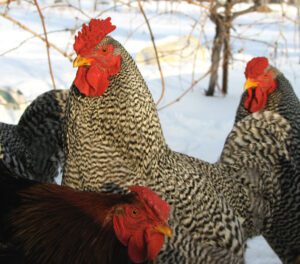
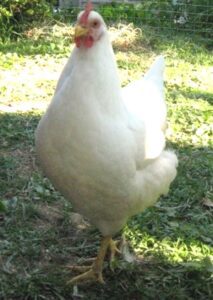
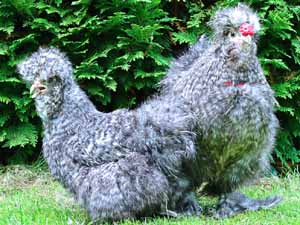
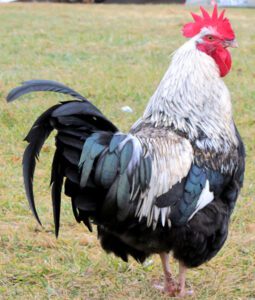
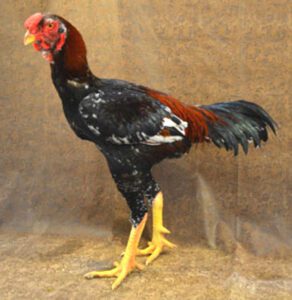
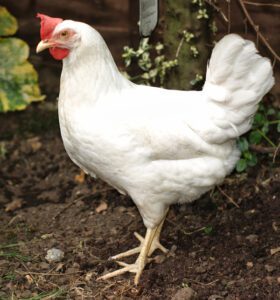
I inherited an older her Donna, she has curly toe and won’t stand at all. I try to keep her in a nesting box but she tries to roost, and I find her in a heap on the hen house floor. Is there certain vitamin I can give her to help her walk again and un-curl her toes?
Thank You, Dot